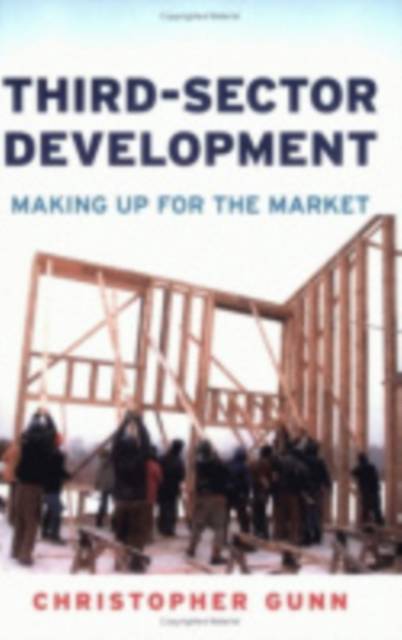
- Afhalen na 1 uur in een winkel met voorraad
- Gratis thuislevering in België vanaf € 30
- Ruim aanbod met 7 miljoen producten
- Afhalen na 1 uur in een winkel met voorraad
- Gratis thuislevering in België vanaf € 30
- Ruim aanbod met 7 miljoen producten
Omschrijving
Nonprofit corporations, cooperatives, and credit unions constitute an alternative avenue of hope and action for communities that have come up short in the normal operation of the market economy. These organizations comprise the third sector, which accounts for approximately 10 percent of U.S. economic activity. As part of the fastest growing sector in the economy, these dynamic organizations play an increasing role in strengthening local economies. In the United States, they help to compensate for a state that is, in Gunn's view, relatively disengaged from meeting basic human needs. This book helps move thinking about the third sector beyond traditional nonprofits centered on education, health care, and charity, and into the realm of often smaller, dynamic organizations that engage in collective entrepreneurship. Throughout, Gunn illustrates how organizations founded with little in the way of financial resources have made substantial contributions to economic development and general well-being in the communities they serve and from which they arise. After explaining why local development is a problem in such a wealthy and resource-rich country as the United States, Christopher Gunn profiles more than two dozen organizations ranging from child-care cooperatives to retirement communities, from co-housing "villages" to financial institutions. He also investigates public-policy changes that could strengthen this alternative sector's contribution to economic development.
Specificaties
Betrokkenen
- Auteur(s):
- Uitgeverij:
Inhoud
- Aantal bladzijden:
- 232
- Taal:
- Engels
- Reeks:
Eigenschappen
- Productcode (EAN):
- 9780801488818
- Verschijningsdatum:
- 16/12/2003
- Uitvoering:
- Paperback
- Formaat:
- Trade paperback (VS)
- Afmetingen:
- 154 mm x 228 mm
- Gewicht:
- 344 g

Alleen bij Standaard Boekhandel
Beoordelingen
We publiceren alleen reviews die voldoen aan de voorwaarden voor reviews. Bekijk onze voorwaarden voor reviews.











